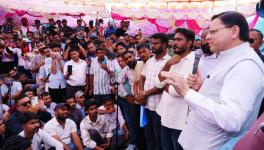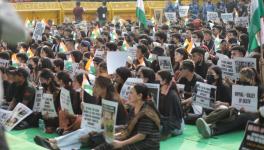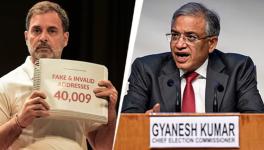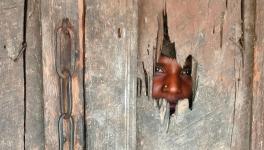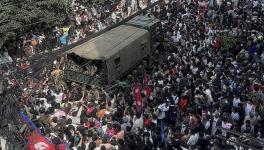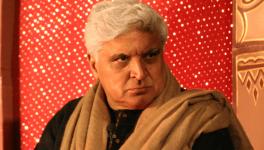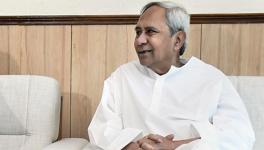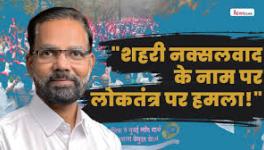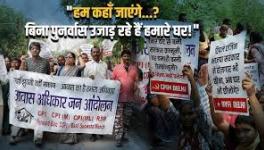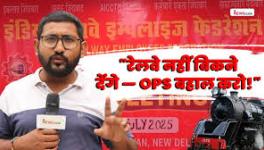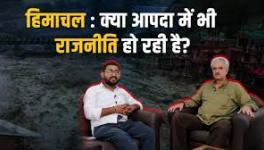WB Polls: Parties Vie for Matua Votes with Doles, Citizenship Issue Looms
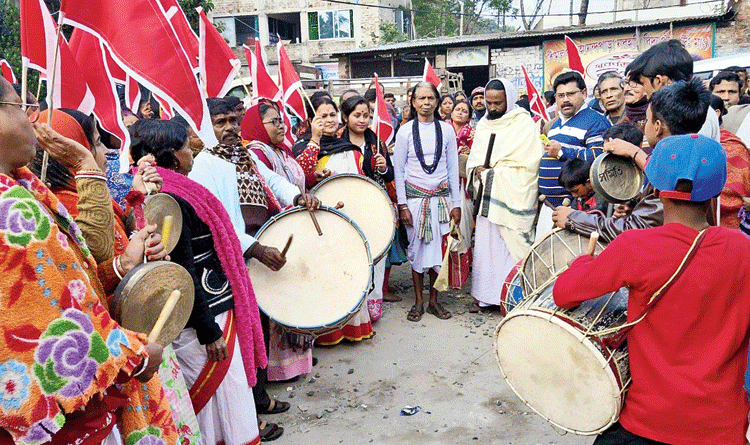
A programme by a Matua outfit against the CAA. Image Courtesy: Telegraph India
Kolkata, Feb 20: With the West Bengal Assembly Elections fast approaching, Trinamool Congress supremo and West Bengal Chief Minister, Mamata Banerjee, is trying her best to secure the maximum support of the Matua electorate.
Making her task difficult will be Union Home Minister Amit Shah, who is trying hard to ensure that the Bharatiya Janata Party, which substantially dented the TMC’s Matua support base in the 2019 Lok Sabha Elections, improves upon its performance. The BJP had bagged the Bangaon Lok Sabha seat – under whose jurisdiction the headquarters of the Matua Mahasangha falls at Thakurnagar in North 24 Parganas district – in 2019. A pilgrimage to Thakurnagar is considered a must for leaders from established political parties during state and general elections.
That the Matua community constitutes a large chunk of the state’s Scheduled Caste population is borne out by the fact that its members account for 17.4% of the state’s seven crore-plus electorate. Of the district’s 33 assembly seats the TMC had won 27 seats in 2016, an election which marked Mamata’s second term at Nabanna, the state secretariat.
However, in 2019 the TMC fared poorly in about a dozen assembly seats, including those forming part of Bangaon. In four of these constituencies – Bagda, Bangaon Uttar, Bangaon Dakshin, Gaighata – the community has an overwhelming presence.
The Matuas are concentrated in North 24 Parganas and South 24 Parganas districts. They also have a presence in the districts of Nadia, Howrah, Malda, Cooch Behar, Uttar Dinajpur and Dakshin Dinajpur. Their voting patterns reflect directly in about 40 assembly constituencies. Indirectly they influence the results of some 25 seats. Given that West Bengal has 294 assembly constituencies, it is clear that the Matua electorate constitutes a critical mass.
The key issue this time around is the implementation of the Citizenship (Amendment) Act 2019. Predictably, the TMC camp at Thakurnagar toed Mamata’s line, who has not only opposed the CAA but also declared that she would not allow its implementation in West Bengal.
It goes without saying that the BJP camp at Thakurnagar toes the party line and wants the CAA implemented to accord citizenship to its members, who came to the state as refugees after 1947 and also during the Bangladesh Liberation War in 1971. In the second case, a large number of people stayed back in West Bengal. Their progeny became citizens by birth but their parents had to be content as refugees. In fact, the BJP camp has been complaining about the delay in the Centre’s implementation of the CAA.
Their grievance stems from the Citizenship (Amendment) Act, 2003, whose provisions made it difficult for the refugees to get citizenship. They have, therefore, been demanding an amendment to the 2003 Act. The proposed National Register of Citizens added to their woes. However, the BJP has also provided the antidote: CAA.
Against this backdrop, the Union home minister’s task was cut out when he visited Thakurnagar on February 11 and addressed a largely attended public meeting. Shah assured impatient Matuas that the CAA’s implementation would begin after the government was done with the COVID-19 vaccination programme. He contended that the implementation schedule had gone awry because of the pandemic; the time-table for framing rules under the Act could not be maintained.
It is here that the issue assumes strong political overtones. Mamata Thakur, an important Matua leader from the TMC who was a member of the last Lok Sabha, is of the view that what Shah has been saying is tantamount to hoodwinking the people. She told Newsclick that Shah’s contention was not all that convincing, saying he has spoken little of the “citizenship mess in Assam.” Also, what about the many pending cases in the Supreme Court, she asked. Moreover, the people possess ration cards, Aadhar cards, voter ID cards; how can they not be considered citizens, she contended.
One demand that has the backing of most people is that citizenship should be granted unconditionally. What they have in the back of their mind is that they should not be asked to apply for citizenship. Provision for application will invariably entail submission of documents. Shantanu Thakur, the BJP MP from Bangaon, has welcomed Shah’s “comprehensive clarifications”.
Political rivalries are also manifesting themselves in different ways. Making the utmost use of the occasion, Shah made several promises which were on the lines of Mamata’s dole politics. His promises include: renaming Thakurnagar railway station as Shridham Takurnagar “pretty soon after BJP came to power”, toning up infrastructure around the existing temple and building a new temple in the memory of the two Gurus of the community – Harichand and Guruchand – and a scheme meant exclusively for Matua undergraduate and post-graduate students. The second proposal that will take effect “soon after the BJP formed the ministry” will be a chief minister’s refugee welfare scheme, which will be meant for all refugees.
This evoked a somewhat caustic comment from Mamata Thakur, who said: “Amitji was trying to hijack the development initiatives already acted upon by our chief minister”. The sitting Bangaon MP, contended that Shah had spoken about “comprehensive” development. The CM has been extending sops to Thakurnagar for several years. Her major commitments include setting up of a university and the Matua development board.
About the Matuas
The Matua movement against upper-caste hegemony and for its dignity dates back to the later part of the 19th century. It was a Dalit movement led by the Namashudra community, a Hindu sect, in the then eastern part of Bengal. It had originated earlier in the mid-19th century at the village of Orakandi in Faridpur district under the leadership of Harichand Thakur. After Harichand’s death in 1878, his son Guruchand Thakur led it and succeeded in spreading it among other Dalit groups.
The Namashudras did not participate in the anti-partition agitation between 1905 and 1911, mostly by upper-caste Hindus and a small number of nationalist-minded Muslims. During the movement they demanded of the authorities to be treated as Brahmins and accorded higher caste status. Namashudras as a community figured in the census report of 1911. The community’s apex body, the All-India Matua Mahasangha, which has a large membership base, was established in 1915.
During the 1940s the Namashudra movement saw several developments, most notable of which was its links with B.R. Ambedkar and political alliance with the Muslim League. The movement’s leader, Jogendra Nath Mondol, became a minister in then East Pakistan. They went back on their alliance with the Muslim League as they felt threatened during the widespread communal violence of 1950. Thereafter, Namashudras began to move in sizeable numbers to West Bengal.
The Matua devotees settled down at Thakurnagar in North 24 Parganas. The sect maintained their tradition and grew stronger in numbers in the aftermath of the 1971 Bangladesh Liberation War in which a sizeable section of the refugees stayed back in West Bengal, even after the birth of the new nation. Their progeny added to their numbers in subsequent years.
Get the latest reports & analysis with people's perspective on Protests, movements & deep analytical videos, discussions of the current affairs in your Telegram app. Subscribe to NewsClick's Telegram channel & get Real-Time updates on stories, as they get published on our website.










